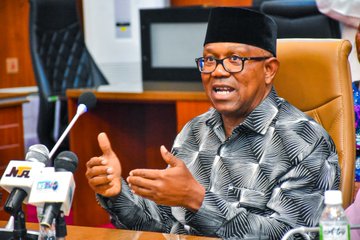
Nigeria’s $4.5 Billion Sugar Masterplan: Ambition Meets Challenges
Nigeria’s National Sugar Development Council (NSDC) has unveiled an ambitious roadmap to revolutionize the sugar industry, requiring $4.5 billion in investments to achieve its National Sugar Masterplan (NSMP). At a recent National Assembly hearing, stakeholders debated funding strategies, regulatory reforms, and the plan’s potential to reshape Nigeria’s economy.
The NSMP Vision: Jobs, Forex, and Rural Growth
The NSMP targets three transformative goals by 2030:
- 100,000 High-Quality Jobs: Boosting employment in agriculture and manufacturing.
- $1 Billion Annual Forex Savings: Reducing sugar imports through local production.
- Rural Infrastructure Development: Building roads, schools, and healthcare near sugar plantations.
NSDC Executive Secretary Kamar Bakrin stressed: “This plan isn’t just about sugar—it’s about industrializing rural Nigeria and securing economic sovereignty.”
Funding Friction: Sugar Levy Redirect Sparks Concern
A contentious proposal to divert 50% of the sugar levy to the Consolidated Revenue Fund (CRF) drew sharp criticism. Bakrin warned:
“The levy was designed to fund sectoral growth, not government coffers. Redirecting it risks derailing investor confidence and our $1B forex goal.”
The NSDC has formed a technical committee to address the issue, emphasizing transparent, rule-based policies to attract critical investments.
Stakeholder Voices: Collaboration vs. Overlap
- Minister John Eno (Industry, Trade & Investment):
*“Sugar is key to Tinubu’s $1T economy vision. Success hinges on accountability and public-private synergy.”* - NAFDAC DG Mojisola Adeyeye:
Highlighted regulatory overlaps, urging clarity to avoid conflict with NAFDAC’s food safety mandate. - BUA Group’s Dr. Aliyu Idi Hong:
Showcased progress: 20,000 hectares under cultivation, with plans for 50,000 more. “We back the NSMP but urge policies that balance consumer affordability and producer viability.”
Challenges Ahead
- Investor Confidence: Requires stable policies and protection of sector-specific levies.
- Regulatory Clarity: Avoiding duplication between NSDC and NAFDAC.
- Scaling Production: Expanding plantations and processing facilities to meet domestic demand.
Path Forward: Legislative and Industry Action
Rep. Enitan Dolapo Badru, House Committee Chair, emphasized:
“Our goal is inclusive legislation to strengthen the NSDC and deliver a competitive sugar industry.”
Key steps include:
- Safeguarding sugar levy funds for sector development.
- Streamlining roles between NSDC and regulatory bodies.
- Incentivizing private sector participation through tax breaks and infrastructure support.
Join the Conversation!
Can Nigeria’s Sugar Masterplan transform its economy? What policies would you prioritize to attract $4.5B in investments? Share your insights below!
[CTA]: “Subscribe for updates on Nigeria’s industrial growth, agro-economy trends, and policy reforms.”
Why This Matters:
With global sugar demand rising, Nigeria’s NSMP offers a blueprint for reducing import dependency, creating jobs, and leveraging agriculture for economic resilience. However, balancing regulatory efficiency and investor trust remains critical to unlocking its $4.5B potential.
Stay informed as we track Nigeria’s journey toward sweetening its economic future.

















Be the first to leave a comment